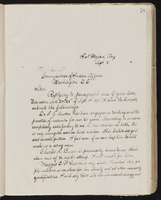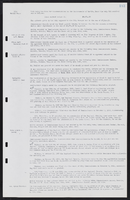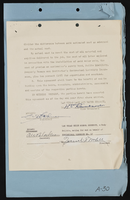Search the Special Collections and Archives Portal
Search Results
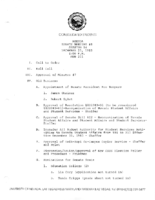
Meeting minutes for Consolidated Student Senate, University of Nevada, Las Vegas, December 20, 1983
Date
Archival Collection
Description
Text
Sperling Kronberg Mack Holocaust Resource Center oral history interview
Identifier
Abstract
Oral history interview with the Sperling Kronberg and Mack Holocaust Resource Center conducted by Barbara Tabach on September 4, 2014 for the Southern Nevada Jewish Heritage Project. In this interview, Myra Berkovits, Susan Dubin, and Doug Unger discuss the history of the Sperling Kronberg Mack Holocaust Resource Center and how it serves to provide holocaust educational materials to the Southern Nevada community. The interviewees discuss the Holocaust Resource Center's priority of education and awareness as well as the history of its funding.
Archival Collection
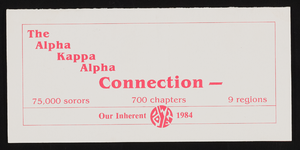
Alpha Kappa Alpha Sorority Connection committee brochure
Date
Archival Collection
Description
From the Alpha Kappa Alpha Sorority, Incorporated, Theta Theta Omega Chapter Records (MS-01014) -- Chapter records file.
Text

Transcript of interview with James Bonnell by Gerald L. Conner, February 22, 1977
Date
Archival Collection
Description
On February 22, 1977, James Bonnell interviewed Gerald L. Connor (born 1930 in Boston, Massachusetts) about his experiences in Nevada and his work in education. Connor first talks about his move to Nevada while he was a member of the United States Air Force. He then discusses his education, including that at the University of Nevada, Las Vegas, and also describes his church membership. Connor later talks about changes in the schools and school district, the growth of gambling and properties located in Downtown Las Vegas and the Las Vegas Strip, and the early atomic tests at the Nevada Test Site. He also describes in detail his political activity and involvement with the Democratic Party, including his work with candidates for the offices of Nevada Governor and United States Senator. Towards the end of the interview, Connor talks about events such as Helldorado, the growth of the city over time, and his thoughts on the future of Las Vegas.
Text
The Story of Classic Las Vegas Oral History Interviews
Identifier
Abstract
Archival Collection
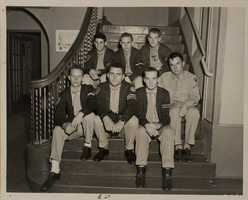
Rex Anthony Bell, Jr. (second row on the right) at Elsinore Naval and Military School Private School in Lake Elsinore, California: photographic print
Date
Archival Collection
Description
Bell Family Scrapbook scanning, Set 1, proofed 08.11.2010
Image
